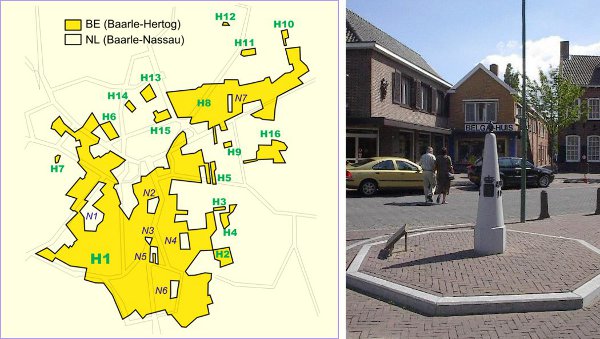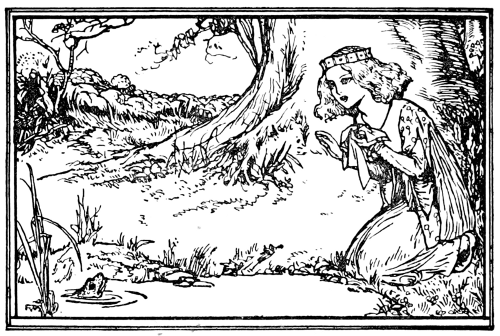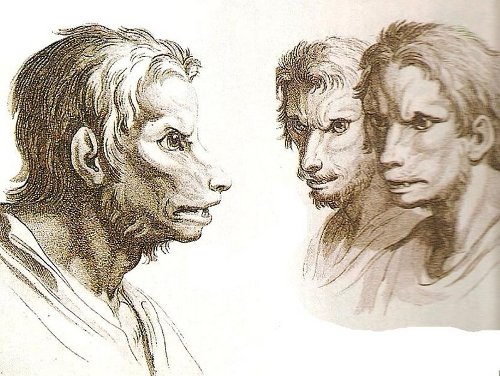
Through an accident of history, the Belgian town of Baarle-Hertog is located largely inside the Netherlands — it’s made up of 24 separate parcels of land, 20 of which lie inside the Dutch border, enmeshed with the Dutch municipality of Baarle-Nassau. To make things more confusing, two of these pockets of Belgium themselves contain pockets of the Netherlands.
This makes life interesting. Each house is deemed to pay taxes in the country where its front door is located, which means that some shops contrive to move their doors by several meters to get a favorable rate. A house can move to another country by moving its front door. Tourists who go shopping can encounter two tax regimes in the same street. And a child born to one Belgian and one Dutch parent possesses two passports.
At one point the speed limit was 60 kmh in the Netherlands and 50 kmh in Belgium, a perilous situation when a motorist might cross the border several times a minute. “Once, a motorcycle accident happened in front of Baarle’s cultural center,” writes Evgeny Vinokurov in A Theory of Enclaves (2007). “It happened on the territory of Baarle-Hertog but so close to the border running across the street that the man was dragged along to Baarle-Nassau. The ambulance from Baarle-Hertog arrived but did not help the bleeding man.”
And in 1971 a corrupt bank occupied a building that straddled the border, which permitted it to avoid being searched by the authorities of either state. The Belgian tax department couldn’t reach the safe, which lay behind “Dutch” counters. And the Dutch authorities could pass the counters but couldn’t open the safe, which was “Belgian.” Finally, authorities from both states undertook to search the premises in a joint effort, and the bank was eventually declared bankrupt after investigations into the laundering of drug money.






